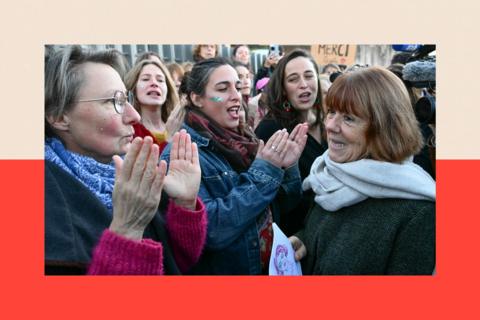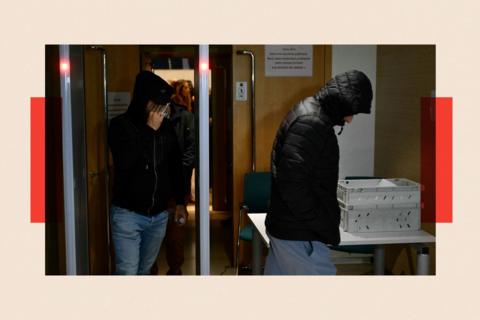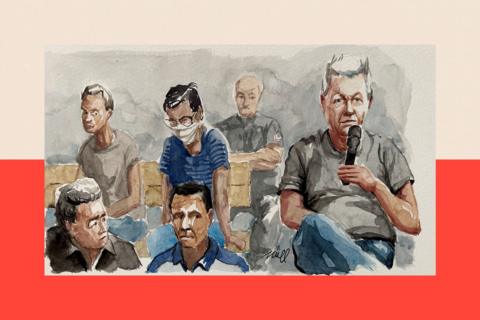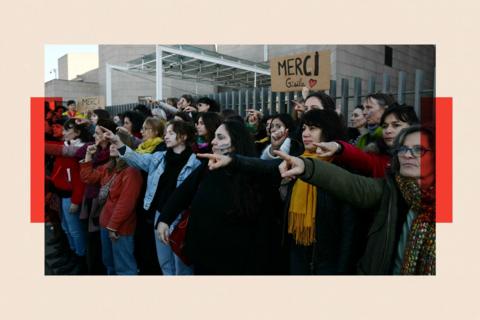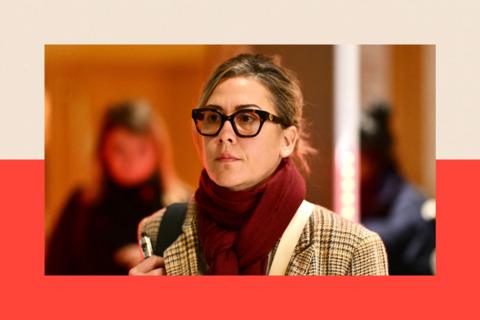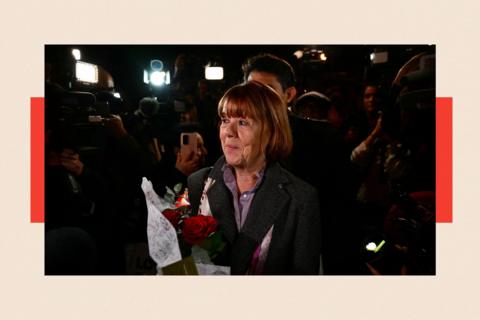Warning: This story contains descriptions of sexual abuse.
Each morning, the queues began forming before dawn. Groups of women – always women – stood in the autumn chill on a pavement beside a busy ring road, outside Avignon's glass and concrete courthouse.
They came, day after day. Some brought flowers. All wanted to be in place to applaud Gisèle Pelicot as she walked, purposefully, up the steps and through the glass doors. Some dared to approach her.
A few shouted: "We're with you, Gisèle," and "Be brave."
Most then stayed on, hoping to secure seats in the courthouse's public overflow room from where they could watch proceedings on a television screen. They were there to bear witness to the courage of a grandmother, as she sat quietly in court, surrounded by dozens of her rapists.
"I see myself in her," said Isabelle Munier, 54. "One of the men on trial was once a friend of mine. It's disgusting."
"She's become a figurehead for feminism," said Sadjia Djimli, 20.
But they came for other reasons too.
Above all, it seemed, they were looking for answers. As France digests the implications of its largest rape trial, which is due to end this week, it's clear that many French women – and not just those at the courthouse in Avignon – are pondering two fundamental questions.
